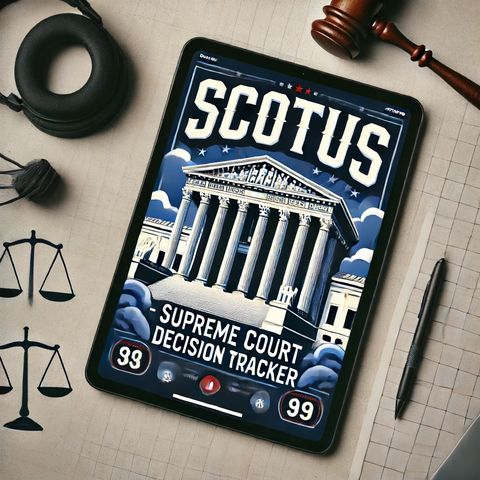"Utah Supreme Court Upholds Primary Election Integrity, Denies Late-Ballot and Result Challenges"

Download and listen anywhere
Download your favorite episodes and enjoy them, wherever you are! Sign up or log in now to access offline listening.
"Utah Supreme Court Upholds Primary Election Integrity, Denies Late-Ballot and Result Challenges"
This is an automatically generated transcript. Please note that complete accuracy is not guaranteed.
Description
In recent rulings by the Utah Supreme Court, two electoral-related cases were decisively addressed, impacting the outcomes and procedural considerations of primary elections in Utah. In the first case, Colby...
show moreIn the first case, Colby Jenkins, a congressional candidate, sought intervention from the Utah Supreme Court to allow ballots postmarked after the June primary deadline to be counted. Jenkins advocated for the counting of these late-arriving ballots to ensure broader voter participation and representation. However, the court dismissed Jenkins' request. This decision raised several questions and concerns regarding voter disenfranchisement, as denying the count of these ballots potentially excluded the votes of citizens who mailed their ballots on or before the election date.
On a closely related note, another petition was brought to the Utah Supreme Court by Phil Lyman, another political figure who contested the primary election results. Lyman's petition aimed for a more drastic measure, seeking to have the primary election results discarded entirely. Chief Justice Matthew Durrant signed the order denying this petition as well, which maintained the integrity and results of the primary election.
Both of these cases highlight significant issues within the electoral system, especially concerning ballot deadlines and the finality of election results. The Utah Supreme Court's rulings emphasize a strict adherence to established electoral deadlines, reinforcing the principle that rules need to be clear and adhered to, to ensure the fairness and efficiency of elections. However, these decisions also spark a debate about the balance between procedural rigidity and flexible measures that accommodate voter participation, especially in scenarios that might prevent timely ballot submissions, such as postal delays.
These cases from the Utah Supreme Court underscore the ongoing challenges and discussions surrounding electoral laws and voter accessibility in the United States. As such, they serve as crucial precedents for how similar cases might be handled in the future, not only in Utah but across other states grappling with similar electoral issues.
Information
| Author | QP-4 |
| Organization | William Corbin |
| Website | - |
| Tags |
Copyright 2024 - Spreaker Inc. an iHeartMedia Company
